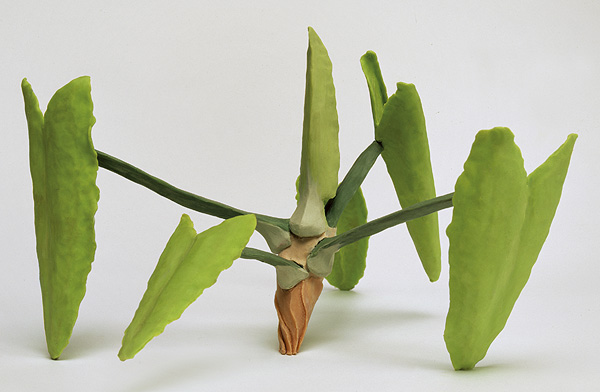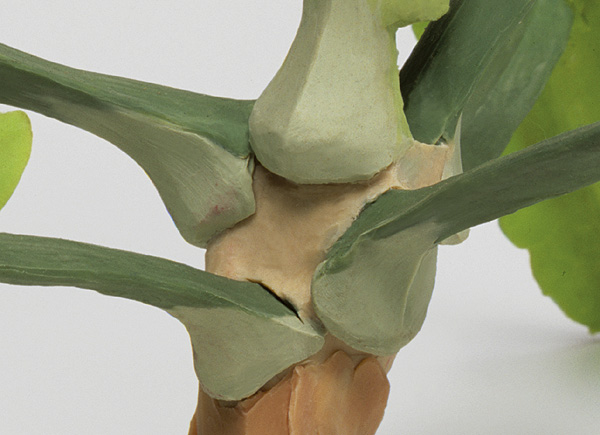ausserhalb des mittelpunktes liegende spinnerin
eccentric spinstress


alle bewegungen der organismen sind träge. bei älteren individuen bildet sich zwischen körper und extremitäten eine nahrungsrinne. in den kopfschalen entwickelt sich ein rudimentäres gehirn, bestehend aus nervenzellen, glia und blutgefässen (neuroangiomatöses konvolut). clotho excentrica vermehrt sich ausschliesslich vegetativ. sexuelle fortpflanzung findet nicht statt. unter günstigen umweltbedingungen sterben die einzelnen organismen nicht, sondern verjüngen und vermehren sich durch abtrennung oder teilung. ihre körper lassen sich in den mittleren präoralen kopfabschnitt (prostomium), den rumpf und die extremitäten einteilen. der nach unten gerichtete scharfkantige kopfabschnitt übertrifft den zylindrischen rumpf um ein vielfaches an länge: im hohen alter erreicht der organismus längen von bis zu 2 m und davon entfallen nur 40 cm auf den rumpf. trotz seiner beweglichkeit und muskulosität kann der kopf nicht in den rumpf eingezogen werden.
all movements of the organism are langurous. a crease for food develops between the body and the extremities of older individuals. in the cranial bowls a rudimentary brain develops, consisting of nerve cells, gliae and blood vessels (neuroangiomatoric convolute). clotho excentrica only reproduces vegetatively. sexual reproduction does not occur. under favorable circumstances, the organisms do not die, but instead rejuvenate and reproduce through abscission or division. the body can be devided into the central, preoral head-part (prostomium), the torso and the extremities. the head-part is several times as long as the cylindrical torso. at old ages, the organism can reach lengths of around 2 m, of which the torso makes up only 40 cm. despite its mobility and muscularity, the head cannot be detracted into the torso.

